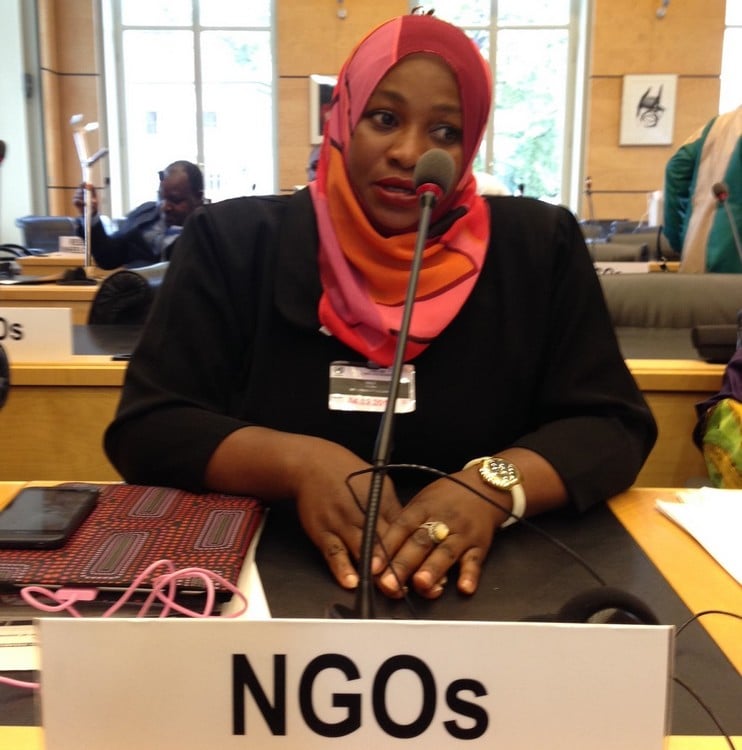Fatma, who benefited from the support of Handicap International, talked to us about the situation facing people with disabilities in Kenya and her role in defining the Sustainable Development Goals (SDGs). The Goals will be adopted by the United Nations between 25th and 27th September and which, for the first time, include people with disabilities.
 What’s the biggest obstacle to the social inclusion of people with disabilities in Kenya?
What’s the biggest obstacle to the social inclusion of people with disabilities in Kenya?
“People don’t know much about disability to start with. And they know even less about the rights of people with disabilities. People think of disabilities as an illness requiring medical treatment. The issue of a person’s dignity doesn’t seem to cross anyone’s mind. People think that disabled people don’t have any rights."
"On top of that, we don’t have much statistical data on the lives of people with disabilities in Kenya. Where do they live? What type of disabilities do they have? What are their needs? The services in question have very little training in gathering and centralising data. The problems are poorly understood and the policies are inappropriate.”
What sort of inequalities do people with disabilities face?
“People with disabilities in Kenya are marginalised. Either they are unable to access basic services - for example, there are no schools adapted to children with learning disabilities - or the buildings are physically inaccessible for people with physical disabilities. However, people’s mentalities are the first obstacle to overcome. In many cases, people don’t want to take care of people with disabilities and prefer to ignore a problem that embarrasses or frightens them. Some people think disabilities are contagious!”
What would you say is your main victory for people with disabilities in Kenya?
“Thanks to our efforts, Kenya adopted a positive discrimination policy for the employment of people with disabilities but it hasn’t had an impact yet, I have to admit. The country’s constitution is fairly progressive on this subject, with a specific article reaffirming the rights of people with disabilities. The problem is applying it.”
What was your role in defining the Sustainable Development Goals (SDGs)?
“The process launched by the United Nations to define the SDGs was quite complicated. Our organisation was part of a national forum which took part in the debates. We were also able to organise a large-scale awareness campaign on disability and the lives of people with disabilities targeted at civil society and the authorities. This enabled us to insist on the need to include disability in the next development goals.”
How will the SDGs help people with disabilities?
“For me, it provides a framework that reflects realities on the ground, and that’s already a step forward. States and other development organisations voluntarily commit themselves to achieving the goals which include people with disabilities. Disabled people’s organisations will play a vital role in implementing inclusive development policies. Lastly, people have been using our knowledge and asking for our opinion. It’s an incredible turning point!”
What do we need to look out for to ensure people with disabilities are not left behind?
“It’s going to be very important to continue improving the professional skills of disabled people’s organisations, so that they are capable of monitoring the implementation of the Sustainable Development Goals. And we need to continue making the authorities and society in general aware of the conditions in which people with disabilities live. And to carry on changing people’s attitudes.”
How did your partnership with Handicap International help your organisation in its work?
“The partnership with Handicap International helped to build our organisational capacities. We are a more professional organisation, with more skilled employees - from accounting to political lobbying techniques. Handicap International provided us with training in a lot of different fields. It also provided my organisation with a platform to share experiences and practices. The sharing of information with similar organisations provided the backdrop to the improvements we have made to our work and enabled us to open ourselves to new ideas and strategies.”


 What’s the biggest obstacle to the social inclusion of people with disabilities in Kenya?
What’s the biggest obstacle to the social inclusion of people with disabilities in Kenya?


